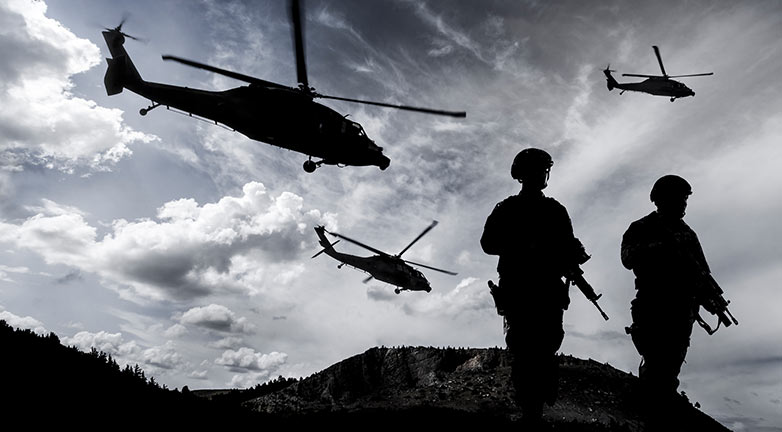ASCM Insights

5 Military Principles to Help Supply Chain Organizations in Uncertain Times
By Chad Storlie
Uncertainty is one of the most destructive forces to plans and operations. Uncertainty builds fear, fear creates inaction, and inaction halts progress. Today, the uncertainty we are facing is fueled by closings, ongoing economic shocks, medical risks and an end that is not in sight. However, just as the U.S. military mitigates the effects of uncertainty through training and standard operating practices, military principles can help us all succeed and even thrive during the coming months.
To ensure that objectives are met consistently, the U.S. Military employs five basic tenets when conducting mission preparation, mission execution and leadership development:
- Define the mission so everyone knows their purpose. Military planning begins with a mission statement that describes the who, what, when, where and why of how a plan will be executed. It is the one piece of information that everyone, from Private to General, understands to ensure the entire organization is working to the same end. During system and economic shocks, ensure that every employee knows their value, why their actions matter and how those actions fit the big picture.
- Train everyone to the same high standard. Simply put: The best way to ensure people perform well in a crisis is to train them to perform well in a crisis. The U.S. Military’s training principle is to “train as you fight,” with a specific focus on execution. This ensures that all equipment, skills and responsibilities are centered around completing the mission in combat, in the dark, and in the rain. The rationale is that, if you can do the mission under the worst conditions, then you can perform successfully in reality. Define standards and conditions so training can be systematically evaluated and reproduced in different locations. Even in the midst of a crisis, training and retraining on key performance standards exhibits a feeling of stability and control when things appear to be spinning out of control.
- Use Commander’s Intent to empower people to take initiative. Military planners use Commander’s Intent to help a plan maintain relevancy and applicability in a chaotic, dynamic and resource-constrained environment. Commander’s Intent is the description and definition of what a successful mission will look like. It details how the Commander (in other words, the CEO) envisions the battlefield at the conclusion of the mission. While it fully recognizes the chaos, lack of a complete picture, situational changes and other relevant factors that may make a plan obsolete when it is executed, it clearly shows what success looks like. This helps subordinates, guiding their initiative, ingenuity and improvisation as they work toward success even in a changing environment.
- The After-Action Review (AAR) builds teamwork and improves operations. The purpose of an AAR is to conduct a fact-based and intensive review of an operation and determine what went well, what did not go well and how to improve in the future. The military employs the AAR process to improve the results of everything from supply convoys to data processing procedures to small-unit attacks. It brings everyone together, seeks to understand what happened and why, and then creates a training plan to correct mistakes and incorporate positive outcomes into future missions. Great AARs can be performed in 30 minutes, reduce employee isolation and cultivates collaboration.
- Finally, maintain ethical behavior. When someone is overwhelmed, unprincipled conduct degrades performance and can even signal that all rules are off. Times of chaos are when leaders need to overemphasize their values and morality to ensure employees, customers and other stakeholders are served and protected.
Chad Storlie is a retired U.S. Army Reserve Special Forces officer with more than 20 years of service. He has been awarded the Bronze Star, the Combat Infantryman’s Badge, the Meritorious Service Medal, the Special Forces Tab and the Ranger Tab. Storlie may be contacted at chad.storlie@combattocorporate.com.